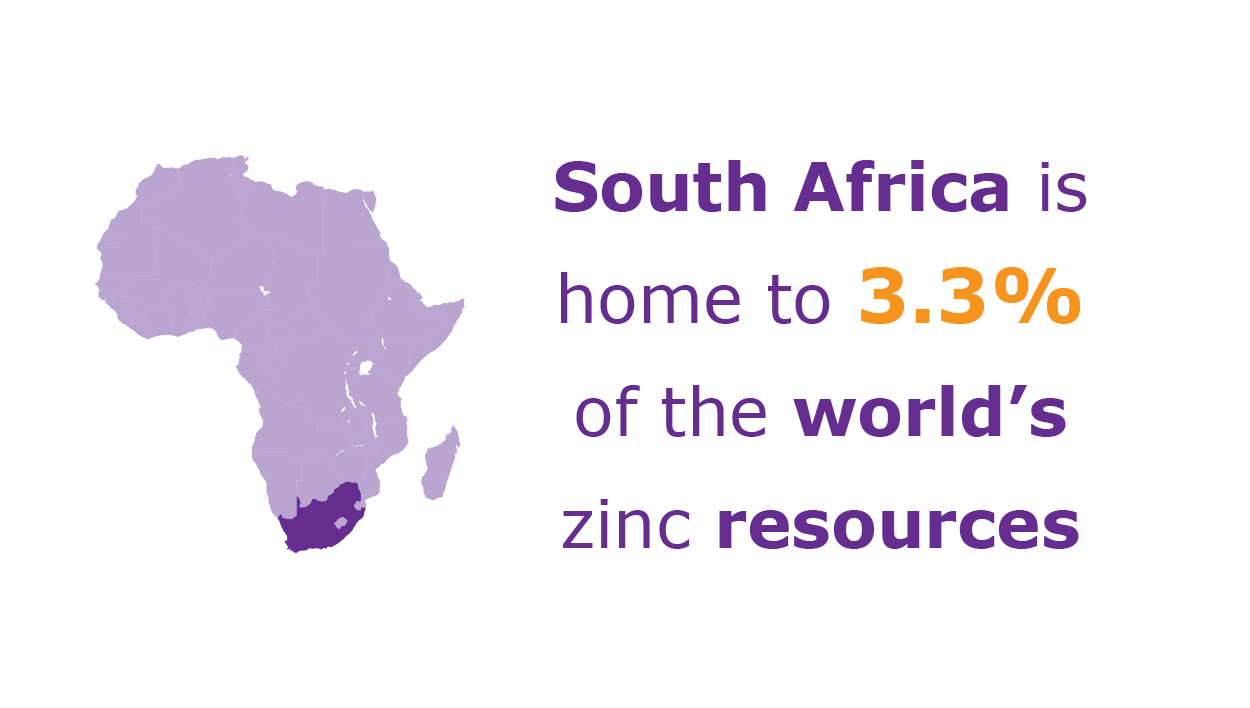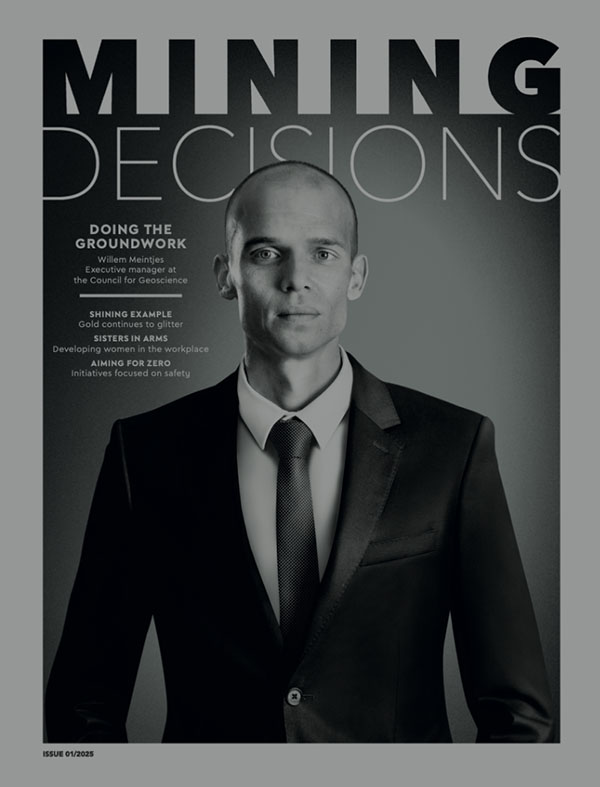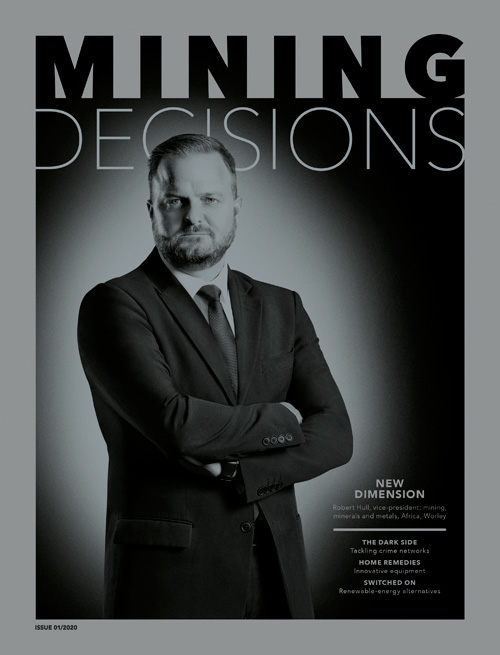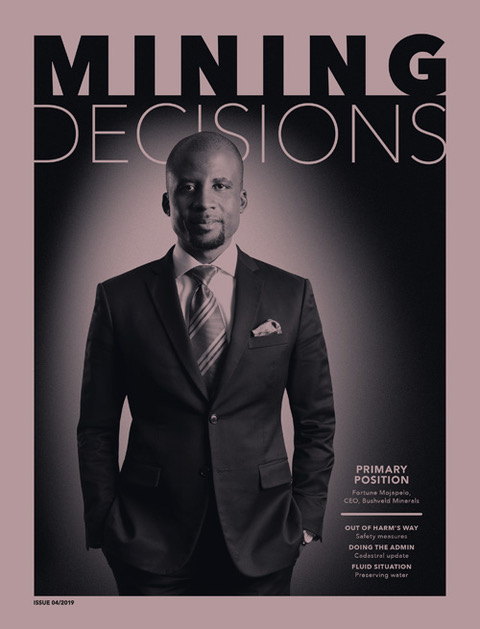When a lawyer like Mervyn Taback talks about law, particularly corporate and mining law, everyone listens. Not just because he has one of the most respected legal minds in South Africa, but because he has spent his entire career devoted to it.
He believes a new era is dawning for the company he helped found and which, as chairman, he has steered into an established presence on the legal landscape.
When Taback and his partners started Tabacks 15 years ago, the objective was to maintain the firm as a small, independent practice – focusing particularly on the needs of its mining and corporate clients.
‘It was a blue-sky environment for us, coming as we did from one of the pre-eminent large law firms in Johannesburg,’ he says. ‘We found that we fitted neatly into this niche by providing superb and efficient representation for those clients who did not want or need the services of larger practices. And despite the foretelling that we would not last longer than six months, we not only survived but continue to thrive in the same space as the major players.’
Over the years, there has been the temptation to grow quickly, and several merger or buy-out offers for the firm have been floated. But, says Taback, they did not want to over-extend themselves.
‘However, the nature of our practice has inevitably changed and expanded. It now includes expertise encompassing banking and finance, tax, mergers and acquisitions, general corporate and commercial matters, competition, employment, environmental and mine health and safety, commercial litigation and, of course, most aspects of mining law.’
Taback believes the mining industry in South Africa is in a unique state of flux.
‘It is in a difficult space at present, and has been for the past decade. The general public is not really aware of the many challenges the industry is facing, such as rising input costs, often hostile labour demands and lower commodity prices with the slowdown in international demand, as well as the need to adapt to a far more inclusive socially responsible landscape. But within that context, the fact that we are retaining any kind of mining industry at all is still an achievement.’
The South African mining sector has proven its resilience to negative forces, and Taback believes that when the next commodity boom occurs, the country will have sufficient regulatory will and experience to take advantage of it.
‘Bureaucracy has been one of the biggest stumbling blocks in the past,’ he says.
‘Ideologically driven regulatory policies coupled with inexperienced administrators have had a severe impact on the local industry. With little background in or technical knowledge about prospecting and mining operations, administrators were not attuned to the need to be quick in their response to queries and challenges. However, this is changing.’
‘We found that we fitted neatly into this niche by providing superb and efficient representation for those clients who did not want or need the services of larger practices’
Since the introduction of the Mineral and Petroleum Resources Development Act (MPRDA) 10 years ago, a lot more experience has been gained and an awareness of the value of the sector is firming.
‘There is greater understanding of the many competing interests in this industry. For example, there are the natural interests of landowners who wish to farm their land or preserve its aesthetic appeal, competing with others who want to develop the mineral resources. Such competing interests lead to tensions among the differing stakeholders.
‘These tensions are understandable given the need to balance the profit motives of investors in businesses seeking returns on their investment versus the many factors that sustain healthy human societies. I think this is particularly difficult in South Africa where first-world and emerging-market economic structures are trying to merge under very specific ideological flags. This obviously results in conflict.’
The traditional landscape is also changing, as the developing economies of Africa become more sophisticated and consumer-orientated. Taback believes the crucial role that private industry plays in creating and spreading wealth is better appreciated and recognised by government today, as is the need for stability and certainty in policy.
Another stumbling block has been transparency within the industry, both regulatory and business. ’There just isn’t enough of it,’ says Taback.
‘You have to appreciate the manner in which business has developed over the past two centuries, spurred by strong competition and high rewards but without specifically strong state controls.
‘There has always been a classic tension between the public and private space, an attitude of wanting to preserve the competitive edge by keeping business knowledge internalised, for example. We are seeing this change, with the large corporates especially making a genuine effort to be transparent and inclusive, although there are still those who hold back.’
Similarly government, largely because of the history of the nation, tends to have an inherently controlling style in keeping matters close to its chest, says Taback.
‘It is an extraordinary thing in the mining industry, for example, that although we have a register of mining titles, it is effectively secret. The public isn’t allowed to see it. This frustrates the process of being able to take advantage of opportunities that may exist.’
People do not necessarily appreciate that, although prior to the MPRDA it was possible in common law to own outright minerals in the ground, there has always been a public licensing regime in mining, in that it was necessary to obtain a mining permit from the state before one could actually mine. However, when you legislate away the common-law concept of mineral ownership, you create what lawyers call a ‘creature of statute’.
‘The common-law notion of landownership, which is really restricted only by principles arising out of “neighbour” law, essentially held that the landowner owned everything on their land “from heaven to hell”, including the minerals in the ground, and could therefore divide it up or do with it as they wished,’ says Taback.
‘Since the MPRDA, this is no longer the case. The state is now the exclusive custodian on behalf of the people of South Africa of all minerals in the ground.’
Following the substitution of statutory mining and prospecting rights for the previous common-law mineral rights regime, it has taken time for the mining industry, including the regulatory authorities, to understand the nature and scope of what such statutory rights entail.
‘You have to appreciate the manner in which business has developed over the past two centuries, spurred by strong competition and high rewards’
Unfortunately, says Taback, it has been at times an uneven learning curve, and often bedevilled by politics and other pressing social and economic concerns.
‘The Mining Charter isn’t really helpful here because it doesn’t impose strictly legal obligations, but rather expresses aspirational objectives for transforming the mining industry. It is essentially a political document that raises questions of both principle and philosophy about the roles and responsibility of the state versus that of the private sector,’ says Taback. He believes the charter has, however, provided guidelines for how the mining industry can meet the broader social aspirations that underpin the country’s democratic endeavour.
This also translates how his practice advises its clients, which is to urge them to comply as best possible.
‘Some of the charter elements require satisfying criteria that are practically impossible to meet. As a mining company, you often simply can’t, for example, afford to provide the housing and other facilities for your employees envisaged in the charter, nor can you be compelled to do so.
‘Human history and experience repeatedly show that simply building hand-out housing and other facilities without real ownership, for which one has laboured, does not create the sustainable human communities that the charter aspires to achieve.
‘For the mining companies, the housing issue is further compounded by having the responsibility of maintenance.’
These problems are not uniquely South African. Tabacks has mining clients in several other African jurisdictions facing similar issues. The firm has not established any external offices on the continent, relying on South Africa as a natural head office for business growth into Africa.
‘This means bringing the expertise of those different jurisdictions in-house, which is somewhat challenging, or sourcing such counsel externally, thereby creating new relationships,’ says Taback. ‘Either way, local counsel should ideally be involved.’
Expansion into other sectors remains on the cards for the future of Tabacks, but still within its boutique legal space, with Taback the man still firmly in control for the foreseeable future.






